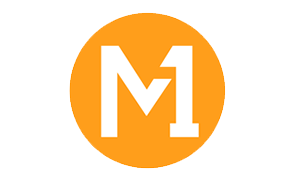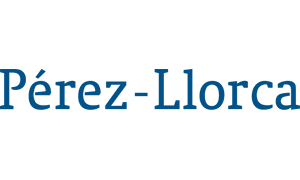Improving follow-up and retention of outsourced personnel through smartphone lending
“We face the problem of how to implement and use IoT with a growing number of cyber-attack threats every day, and people who work with information systems are faced with the extremely difficult and relevant issue of how to find a balance between convenience and security in mobile devices. One ideal solution to this problem is Check Point SandBlast Mobile.”
– Ryō Wakago, Project Leader, BPR Promotion Office, IT Strategy Department, Management Division, COPRO-HOLDINGS Co., Ltd.
Overview
Copro Holdings Co., Ltd.
Copro Holdings Co., Ltd. was founded in 2006 and has grown rapidly. Its main business is outsourcing personnel to the construction industry. With over twenty branches and satellite offices in Japan, the company is developing a nationwide business while also setting up a corporate presence in Singapore with an eye towards the ASEAN market. It also has a focused corporate value, getting listed in the First Section of the Tokyo Stock Exchange and the First Section of the Nagoya Stock Exchange. Copro Holdings’ approach is defined by creating a close support system and pouring resources into training the best personnel. It runs its own training centers for outsourced engineers staffed with experts in every field and holds regular training sessions every three months. This training program makes it possible for Copro Holdings’ employees to stay at the top of their game.
Business Challenges
Smartphone loans: bringing a new wind to the staffing industry
One of the factors behind Copro Holdings’ impressive growth has been its ability to continuously provide talented personnel by establishing its own hiring and training system. Ryō Wakago is Project Leader in the BPR Promotion Office, which is part of the IT Strategy Department in the Management Division, and he is in charge of information systems at Copro Holdings:
“Employee retention has historically been low in the staffing business, and the construction industry has a negative image as dangerous and involving long working hours. To overcome this, we have proactively deployed IoT since our founding as part of our effort to train skilled personnel and improve our working environment.”
Copro Holdings focuses on hiring recent graduates, and its hiring process involves performing a suitability test during selection and using data it has accumulated on existing employees as selection criteria. This reduces the possibility of hiring someone who is a bad fit.
“Our mission is to produce personnel that have high market value and can hit the road running wherever they’re outsourced to. That’s why we use the most precise selection process possible and have put in place a follow-up system that maximises support for employee growth after hiring.”
Always eager to take on new challenges, in September 2019 Copro Holdings started lending smartphones to all outsourced employees.
“It’s not too common for a staffing company to lend all its outsourced employees smartphones, and this is actually the first time this has been done in the construction industry staffing business. We loaned out 2,000 phones in 2019 and plan to increase that number in the future. Lending smartphones has benefits. It lets us improve how our employees work by fixing long working hours, since we can stay on top of their schedules. We can also set up appointments with company doctors no matter where the employees are, making it possible to quickly find solutions to any work-related issues or worries an employee might have, by being in direct contact with follow-up departments. If it all works together the way it should, this system will make it possible to maximize our employees’ skills and improve their retention.”
Solution
Getting over the smartphone deployment hurdle
This cutting-edge approach has not, however, been an easy road to follow, says Mr. Wakago, looking back:
“We have a lot of veteran engineers on staff, some of whom don’t normally use smartphones, so the first thing was to show them how to use the devices. We put together a manual and a list of anticipated questions and answers and distributed these to area managers. Then we provided close support while keeping an eye on the situation. There were some employees who didn’t want to be bothered to use the phones, but now they’re using them in their work without any problems whatsoever.”
Mr. Wakago comments that the biggest worry was dealing with the threat of cyber-attacks:
“Cyber-attacks via mobile devices have become more and more diverse recently, with the increased risk of data leaks through spoofed WiFi attacks and phishing emails. And it’s not just our company that can instantly become a victim – our partners can, too, which is why we had to put in place a complete security solution.”
However, the next problem is that security and usability tend to work in inverse proportion.
“If security makes it complicated to use the phone, employees won’t use them as often, which defeats the purpose of lending them out in the first place. It would be extremely inconvenient if, say, filtering and security were separate tools, or if you had to use a dedicated browser to use the filtering. For there to be any point to this, the phones have to be usable the minute the employees get them.”
Faced with this situation, the solution Mr. Wakago picked from all the available options was Check Point’s SandBlast Mobile.
Results
One operation to solve multiple issues
Mr. Wakago, who has kept his finger on the cyber security pulse and has given a great deal of thought to how to deal with related threat, says that now is the time when IoT usage methods will be put to the test:
“The situation with IoT today can be summed up as going from a feeling that we should try every new convenience, to being aware that dropping your guard even a little bit can lead to serious danger. The talents of people using IoT are being put to the test, in terms of how to ensure maximum security countermeasures without abandoning convenience.”
He says it was because he took IoT best practices into consideration that he picked Check Point SandBlast Mobile for this project:
“Even if Unified Endpoint Management (UEM) can manage devices, it’s not enough to counter mobile threats. UEM has to be paired with Mobile Threat Defence (MTD), but a drop in usability or performance is inevitable if both applications are running. However, Check Point SandBlast Mobile can deliver responsive operation by using a cloud-based analysis engine, while having filtering and many other block function categories and being equipped with all types of mobile threat defences including providing top-level threat detection rates. It also provides intuitive centralized management using its dashboard while working in tandem with UEM. It really is a solution that delivers convenience and security at the same time, without forcing you to sacrifice one thing for another.”
Aiming for a new standard
While Copro Holdings has only just started the industry’s first attempt to achieve both better skills and better retention by lending outsourced employees smartphones to manage their schedules, Mr. Wakago can already feel a growing awareness:
“We won’t be able to quantify the effect of lending out the smartphones using actual numbers for a while, I think, but you can already sense that the employees’ awareness is changing day by day. People say that mobile users aren’t as security-conscious as PC users, but the change in attitude has become clearer every day since they started using the smartphones. The filtering has made them aware of which sites are needed for work and which aren’t, and they’re more aware of what operations pose security risks. Recently people have been asking me things like ‘is this the wrong way to do this?’, indicating an increased awareness of security.”
He also says that managing work on a smartphone has made it possible to create an environment that allows greater focus on work.
“Two things have come together to make it easier to focus on work. One is the peace of mind you get knowing that there’s a tool you can use to talk to the department you need when you need to. The other is just the right level of tension in knowing that all aspects of your work are being monitored. Hopefully, this will lead to greater productivity. We’ve loaned out 2,000 phones since 2019 and plan on increasing that number. As far as functionality goes, we haven’t sat on our laurels but have implemented a lot of improvements and are always tweaking the system. We have also started running our own apps which we have developed in-house, looking for convenient functions we can introduce.”
Copro Holdings has a clear objective in using smartphones in its staffing operations. Perhaps the day when this style of doing business will be the standard is not so far off.
We are in charge of delivering the smartphones to Copro Holdings. We are very proud to be part of this forward-looking effort, the first in the industry, and the project has been a great opportunity to learn about more effective use of mobile devices. Copro Holdings never compromises and always demands the best solutions, and to that end we have made every effort to provide the latest data and value proposals. It makes us proud that Check Point SandBlast Mobile has been recognized as an effective solution in this project, and we will continue working hard to be able to make proposals that live up to our clients’ expectations.
Yoko Goizumi
Sales Team No. 2, Solutions Sales Department, Tokai Branch
T-Gaia Corporation
















